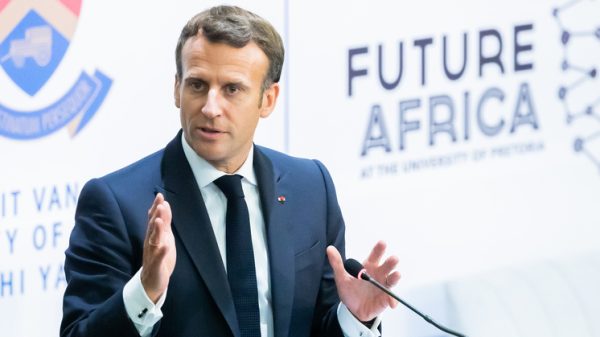 Marina Litvinenko, widow of former Russian agent Alexander Litvinenko, who died in London in 2006 from radioactive polonium poisoning. Photo: Jessica Howard-Johnston/AFP/Getty Images
Marina Litvinenko, widow of former Russian agent Alexander Litvinenko, who died in London in 2006 from radioactive polonium poisoning. Photo: Jessica Howard-Johnston/AFP/Getty Images
On August 22, 2020, I went to Berlin to see friends. Quite by chance, I arrived on the day that Alexei Navalny was transferred from a Siberian hospital to Germany for life-saving treatment.
Russian authorities found themselves at odds with Alexei's wife Yulia and his supporters after he suddenly fell ill during a flight and screamed in agony as the pilots made an emergency landing. At the hospital, doctors put him in a coma and ignored his sudden fainting, saying that he had a metabolic disorder and low blood sugar; he was clearly poisoned.
Yulia begged Putin to allow him to be evacuated for treatment, and the transfer was eventually approved. I didn’t know the Navalnys, but I had long admired them from afar and feared—like all opponents of Putin’s dictatorship—for Alexei’s safety. However, I couldn't stop thinking about Yulia. I knew that I was one of the very few people who might know something about how she was feeling. I know what it’s like to be on duty at your husband’s bedside after he’s been poisoned.
 'I know what it’s like to stay awake at your husband’s bedside after he’s been poisoned' : Marina Litvinenko's husband Alexander, 2006 Photo: Reuters
'I know what it’s like to stay awake at your husband’s bedside after he’s been poisoned' : Marina Litvinenko's husband Alexander, 2006 Photo: Reuters
I decided to contact Alexey's team in Berlin. I called his colleague and said that I would be very glad to talk with Yulia or meet her.
“I just want to be helpful,” I said. I've never heard of her, and I can understand why. At that time, there was such a great risk for all of them that the circle around them had to be tight, so they closed ranks. Then I hoped that one day we would have the opportunity to meet. I hoped that Alexey, having recovered, would continue the fight and evade Putin. I hoped he would survive it. I'm very sorry that he's gone.
When news of Alexei's death became known, I didn't want it to be true. I didn't believe it at first. It wasn't until his team confirmed that he had been killed that it really hit me. I immediately thought of Julia and her children and the terrible, very public trauma they are now experiencing. When your husband is an opponent of Putin, as mine was, you get used to a certain danger, to the reality that one day someone might try to kill him. It doesn't mean you actually believe it will happen.
 Marina and Alexander Litvinenko pictured in Holland Park in London, 2000. Photo: Francesco Guidicini/Shutterstock
Marina and Alexander Litvinenko pictured in Holland Park in London, 2000. Photo: Francesco Guidicini/Shutterstock
My husband Sasha took us out of Russia because he knew that if we stayed there, he would never be able to protect us. With Alexei it was different — he was a politician, he needed to stay there in order to have any hope of having any influence. He was sentenced to 19 years in prison, and from the minute he was locked up, his life hung in the balance. But Putin is an old man, and I hoped that Alexei would eventually be released. I never thought he would be killed. I couldn't stand it.
Navalny represented an opportunity for Russia. He showed people that this could still be our country, that we don't have to completely give in and submit to this dictator. With him you felt there was still a chance.
I'm in awe of how Julia took on this mantle after her husband's murder. I could never do what she does. When Sasha was poisoned, I couldn’t even speak. I was afraid to go out, afraid to talk to the press, I couldn't come to terms with the fact that the world was watching him die. When he died, I went into complete shock. All I could do was focus on our son, who I was very sad and worried about. He was only 12 years old, and this was the second time in his life that he was kicked out of home. He was six when we took him from Moscow, away from home, away from his grandparents, and brought him to Spain and then to London. When his father was so brutally murdered in front of the whole world, I was so worried about him. Julia's children are older than Anatoly was, but no matter how old you are, nothing prepares you for this.
I can completely understand Julia's instinct to keep going, to keep spreading her husband's message. In the months after Sasha's death, this helped me focus my energy on the police investigation. The difference, of course, is that I was in Britain and knew that the investigation would be fair and thorough. Yulia faces a completely different task. Simply returning Alexei's body will not be an easy task. Expecting her to lead the movement is another matter entirely.
 Yulia and Alexei Navalny during an opposition rally in Moscow in 2013. Photo: Maxim Shemetov/Reuters
Yulia and Alexei Navalny during an opposition rally in Moscow in 2013. Photo: Maxim Shemetov/Reuters
I keep thinking about Alexei’s mother Lyudmila. Julia has a team around her and she has a goal that is now part of the mission. But I feel such emotions when I think about Lyudmila, who in this remote corner of Russia is desperately trying to hand over the body of her son to her.
I continue to think about all the other political prisoners. Poor people whose lives, I suspect, are now even more precarious than before. People like Vladimir Kara-Murza, who is serving a 25-year sentence for opposing Putin. This is probably his wife Evgenia's worst nightmare.
After Alexei’s death, they asked me if Yulia would be scared. Will she feel she is in danger, they ask? Will she be looking over her shoulder? I doubt it. We women are protectors first and foremost. She will think about how to support others. I doubt she thinks much about her safety and well-being — I know she doesn't.
 Marina Litvinenko outside the High Court in London during the opening of a public inquiry into the death of her husband. Photo: Paul Grover
Marina Litvinenko outside the High Court in London during the opening of a public inquiry into the death of her husband. Photo: Paul Grover
I was so proud of her when she released a video encouraging people to mourn with her and continue Alexei's legacy. She talked about being angry, and she's right, although I know from experience that you can't stay angry forever — that's not good for you either. Anger is unstable. In many ways, being a public figure is also unsustainable. I hope for Yulia that she knows that sometimes she can say no. I hope she knows that she won't let anyone down if she decides to close herself off from the world from time to time, to walk away from the cameras, to be not the brave face of the movement, but just a grieving widow.
Looking back, I don’t understand how I coped with the situation in those first days after Sasha’s murder. I think the routine helped. I tried — and still try — to keep my life as normal as possible. On any given day during my freshman year, I could talk to a politician or the police or go on television to do an interview, but I also had to do laundry and take my son to school. I had friends who needed me and responsibilities. It saves your life by being normal.
If I can give advice to Yulia, whom I really hope to meet someday, it is that she should listen to herself and understand that this is a marathon, not a sprint. The mission for which Alexei fought is urgent. Putin needs to be stopped somehow. And perhaps Yulia is the woman who can do this. But grief is a slow process, and it will parallel her work. I hope she takes all the time she needs to grieve. At least she deserves it.
As told to Eleanor Stiefel

























































Свежие комментарии